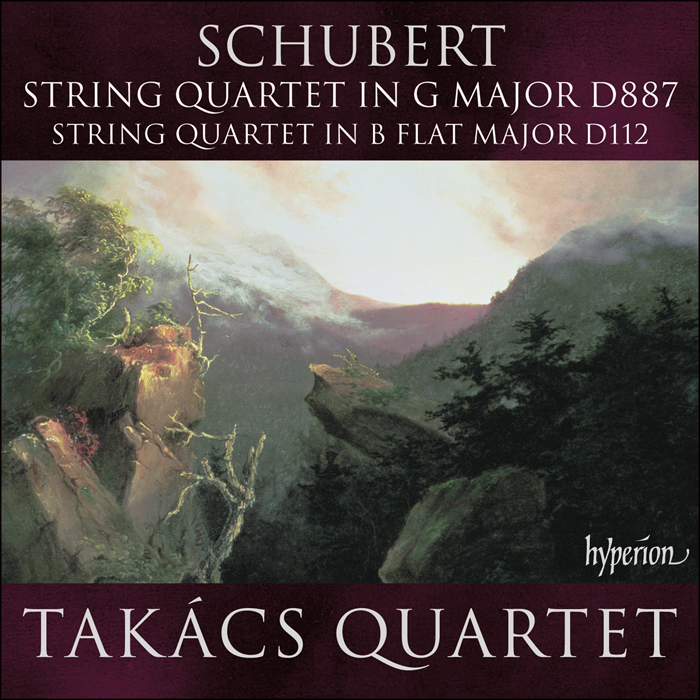String Quartets D112 & 887
Takács Quartet
CDA68423
The ‘heavenly lengths’ Schumann loved in late Schubert are as much in evidence in the sublime G major quartet as in the other large-scale works of Schubert’s final years. The Takács Quartet’s earlier Hyperion recordings of Schubert were hailed as ‘near ideal’ and ‘superlative’ and this new release is every bit as fine.
Behind The Cover
It's understandable to associate the great names of American painting—and the art movements they created—exclusively with the twentieth century: Rothko, de Kooning and Pollock will forever be identified with Abstract Expressionism, Lichtenstein and Warhol with Pop art. But it would be a mistake to think that the nineteenth-century artistic scene was any less flourishing, as the American artists of the age sought to reconcile a European heritage with an increasingly American sense of self.
Thomas Cole (1801-1848) was the founder and a leading practitioner of what later became known as the Hudson River School, a group of landscape painters whose work was contemporary with the rise of Romanticism. Strongly influenced by Constable and Turner, albeit on opposite sides of the Atlantic, the artists of the American group also sought to depict the sublime, bringing a ruggedly Romantic sensibility to their own landscapes. With the Takács Quartet resident in Boulder, Colorado, the opportunity to choose a cover painting of Schubert's time by an American artist (strictly speaking, English-American) proved too good to miss.
Cole was born in Lancashire, emigrating with his family to the United States when he was 17. Largely self-taught as an artist, he moved to New York City in 1825, determined on becoming a landscape painter; his 'Mountain Sunrise' on our album cover dates from the following year and is contemporary with Schubert's great G major quartet. Alas, both Cole and Schubert were fated to die young. But if Cole died aged 47 in 1848, Schubert—and this should never be forgotten—was just 31 when he succumbed either to typhoid fever or syphilis in 1828. With that in mind, to describe the G major String Quartet—or indeed any of the music of Schubert's final years—as a 'late' work seems absurd: Schubert had not yet turned 30 when he wrote it in 1826. But this was to be his last complete string quartet and, it seems, he never heard a complete performance of it. Though it's hard to believe that any of the quartets of the time could have given a performance which approaches, let alone rivals, this one from the Takács.

